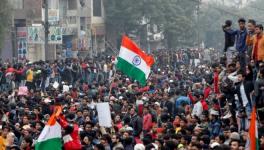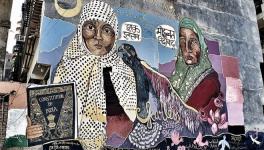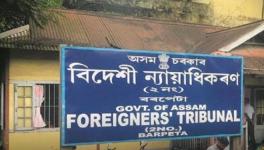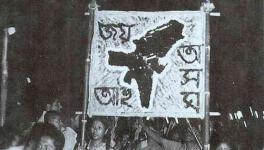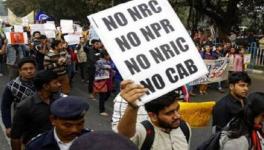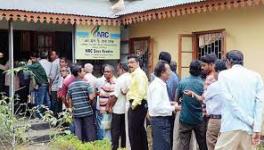How Assam FTs Declare Indians as Foreigners: ‘No Prior Probe, Non-Application of Judicial Mind’
This is the first of our three-part series on the Constitution, functioning, efficiency and independence of the Foreigners Tribunals (FTs) in Assam. This part of the series deals with the Foreigners Act, the executive order through which the FTs are constituted and their functioning.
New Delhi: The fate of over 19 lakh people who have been excluded from the final list of the National Register of Citizens (NRC) — which validates legal Indian citizens in Assam — will be decided by the Foreigners Tribunals (FT) which have been entrusted with the responsibility of deciding the question of citizenship.
Published on August 31, the updated NRC, which is considered final as of now, included 3,11,21,004 (3.11 crore approximately) applicants — leaving out 19,06,657 people who were not found eligible to be mentioned in the citizenry log.
Let’s take a look at the formation of the FTs, the appointments of their members and their functioning.
FTs furnish opinion on the question as to whether a person is or is not a foreigner within the meaning of the Foreigner’s Act, 1946 whenever such reference is made to them. The tribunals have the powers of a civil court while trying a suit under the Code of Civil Procedure in respect of summoning and enforcing the attendances of any person and examining him or her on oath requiring the discovery and production any document and issuing commissions for the examinations of any witness.
FOREIGNERS ACT, 1946
The Act confers upon the Central government certain powers in respect of foreigners. Section 2(a) of the Act defines a “foreigner” as a person who is not a citizen of India. Its Section 9 says the onus of proving that a person is or is not a foreigner lies on that person.
FTs CREATED BY AN EXECUTIVE ORDER
In exercise of the powers conferred by Section 3 of the Foreigner’s Act, 1946 (31 of 1946), the Central government on September 23, 1964, issued a notification for the Foreigners (Tribunal) Order, 1964 and the creation of Foreigners Tribunal under Clause – 2 of the Order. Hence, the tribunals were created by an executive order of the Ministry of Home Affairs (MHA), going contrary to Article 323B of the Constitution of India.
Article 323B — tribunals for other matters — says, “(1) The appropriate Legislature may, by law, provide for the adjudication or trial by tribunals of any disputes, complaints, or offences with respect to all or any of the matters specified in clause (2) with respect to which such legislature has power to make laws.”
Thus, Article 323B of the Constitution states that the “appropriate legislature”, may “by law”, provide for adjudication of matters by tribunals.
“This is limited to a specified category of matters, listed in the Article itself. Citizenship is not one of them. Even assuming that citizenship can indeed be decided by a tribunal, the tribunal still has to be created by the legislature. Hence, FTs in Assam have been created by an executive order without any legal sanctity,” says Advocate Aman Wadud, a lawyer at Gauhati High Court.
Four FTs were set up in 1964. The number increased to nine by 1968. The number of tribunals gradually wound up between December 31, 1969 and March 1, 1973, as the government felt that they are no longer necessary as most of the “infiltrators” had been deported.
However, FTs were revived again in 1979 and 10 tribunals were constituted on July 4, 1979.
In 1983, Illegal Migrants (Determination) Tribunals or IMDT were established under the Illegal Migrants (Determination by Tribunals) Act, 1983. Initially, 20 Illegal Migrant (Determination) Tribunals were established. In 2005, the Supreme Court declared the Illegal Migrants (Determination by Tribunals) Act, 1983, as ultra vires and strike them down. Hence, the IMD Tribunals and appellate tribunals ceased to function.
All cases pending before the tribunals under the IMDT Act, 1983, were transferred to the tribunal constituted under Foreigners Act, 1964 and are being decided according to Foreigner’s Act, 1946, and the procedure prescribed under the Foreigners (Tribunal) Order, 1964, which was later amended as Foreigners (Tribunal) Amendment Order, 2012.
The tribunals are required to discharge a quasi-judicial function.
APPOINTMENT OF TRIBUNAL MEMBERS
Clause 2(2) of the Foreigners Tribunal order states that “the tribunal shall consist of such number of persons having judicial experience as the Central government may think fit to appoint”.
But subsequently, the eligibility was relaxed to advocates with minimum age of 45 years and 10 years of legal practice in addition to sitting/retired/district judges/additional district judges.
On June 10, 2019, the Registrar General of Gauhati High Court issued a notification calling applications from experienced advocates/retired judicial officers of Assam/judicial services/retired civil servants for preparing a panel of 221 candidates for appointment as members of FTs in Assam on contractual basis. The qualification of advocates was reduced to minimum seven years of practice and not below the age of 35 years.
The advertisement says the initial period of appointment shall be one year, which may be extended from time to time on need basis. Subsequently, 221 applicants were selected only based on interviews without any written test.
CASES BEFORE FTs – ‘NO PRIOR INVESTIGATION’
The Assam Police has a wing called Assam Border Police Organisation to deal with the problem of “illegal migration” from erstwhile East Pakistan, now Bangladesh. In 1962, the Assam police established a Special Branch Organisation under the PIP (Prevention of Infiltration of Pakistan) Scheme. Initially, the organisation was headed by the Deputy Inspector General of Police, Special Branch.
This special police unit was entrusted with the task of detecting and deporting “illegal foreigners” from the then East Pakistan. Under the PIP Scheme, nearly two lakh Muslims were forcibly deported to the then East Pakistan without any legal process.
“Ideally, its job is to survey areas under its jurisdiction. If they come across any ‘suspected citizen’, the Border Police is supposed to ask for citizenship documents and give reasonable time for submission of such documents. If the person fails to produce citizenship documents, the Border Police is empowered to send a reference case to a FT against that person. But the Border Police randomly pick people and frame them as illegal immigrants without any investigation. Most inquiry reports are blank or they just write that they approached the person concerned and he or she failed to show any citizenship document,” says Wadud, alleging that “the Border Police — in many cases — approach poor and illiterate citizens — mostly daily wage labourers, rickshaw pullers and even beggars — take their thumb impressions on blank papers, prepare a reference case, alleging such person to be an illegal immigrant and refer the case to FT without any proper investigation”.
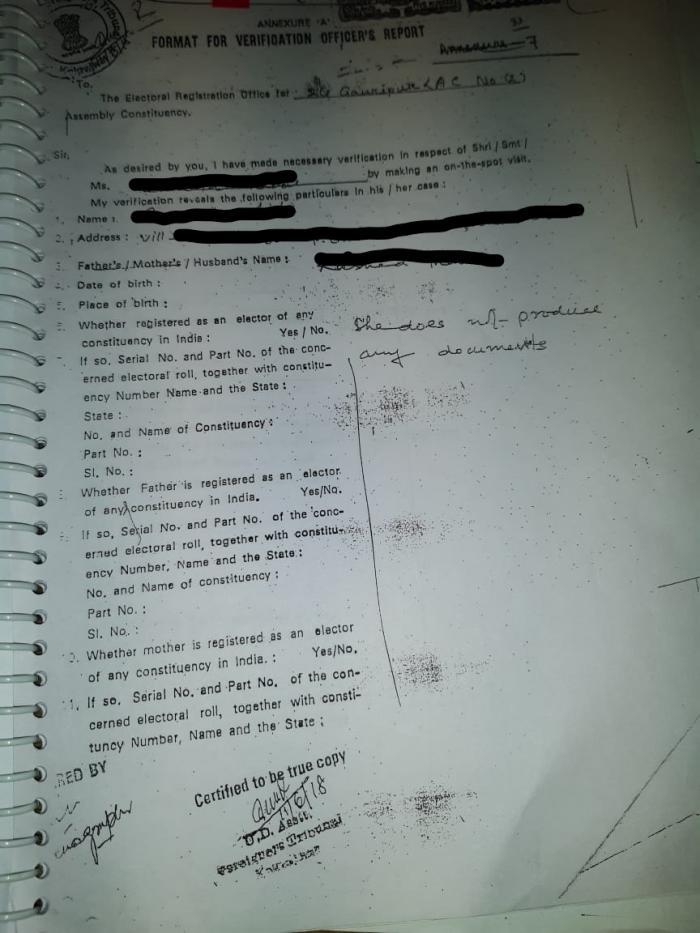
Many such unfortunate people allege that the police ask for bribes after picking them up. If the bribe is paid, they are not “framed” as “illegal immigrants” and if not, their cases are referred to the tribunal for trial.
The Border Police refers all cases of ‘illegal immigrants’ to FTs for its opinion. The tribunal issues a notice and asks the accused/proceedee/opposite party to appear before it and prove his or her citizenship, else he or she will be held a “foreigner” by ex-parte order.
The Assam Border Police Organisation has been also been armed with discretionary powers to suspect anyone, take his or her fingerprints and photographs vide the Government of Assam letter No. PLB.149/2008/Pt/8 dated October 21, 2009.
There are allegations that those fingerprints and photographs are used to register a ‘reference case’ against the suspects.
Since 1997, the Election Commission of India (ECI) has started “strict scrutiny” of the voters’ list. If the EC comes across any voter whose citizenship documents are inadequate, such a person can be marked as ‘D’ voter or ‘Doubtful’ voter. The ‘D’ voters cannot vote because they are defranchised. They are also deprived of benefits of the public distribution system (PDS).
“In reality, EC officials frame a citizen as ‘doubtful’ voter arbitrarily and randomly without even approaching such person and without any investigation whatsoever,” alleged Wadud.
The EC marked more than three lakh people as ‘doubtful’ voters (or D-Voters) in 1997, a large majority of these were women.
The ‘D’ from voter list can be removed if an FT holds such a person as ‘not foreigner’ or Indian citizen. The EC sends such D-Voters cases to the Superintendent of Police (Border) of the respective districts, who refer the cases to the FT for its opinion on status of citizenship of the D-Voter. The FT sends a notice to the person to appear before it with documents and prove his or her citizenship.
“The EC and the Border Police randomly accuse genuine citizens of being D-Voters and illegal immigrants, respectively, without any investigation whatsoever. The verification forms meant to be filled by the inquiry officer are often empty with just names and addresses of proceedees. The grounds simply mentioned in verification report is that ‘the proceedee could not provide any citizenship document’. As a result, even decorated Army and Air Force officers were randomly accused of being illegal immigrant without any investigation,” Wadud says.
The three-judge bench the case, State of Assam Vs Moslem Mondal & Ors in 2013, stated that “fair investigation and fair trial being the basic fundamental/human right of a person, which are concomitant to preservation of the fundamental right of a person under Article 21 of the Constitution, there has to be a fair and proper investigation by the investigating agency before making a reference to the tribunal”.
“But a large number of verification reports of the inquiry officer are almost blank which only proves that there is no proper investigation,” Wadud alleges citing a few such reports.
‘NON-APPLICATION OF MIND’ OF TRIBUNALS
The tribunal members very often allegedly act in a “mechanical manner”. There are instances where even if the verification reports say that the person against whom enquiry was conducted is not a foreigner, the tribunal went ahead with the reference case and declared the person as “foreigner”.
Abdul Mozid, a schoolteacher, had been declared a foreigner despite an inquiry report saying that he is not a suspected foreigner. The order has been challenged before a divison bench of the Gauhati High Court.
A retired Army officer Mohammad Sanaullah was accused of being a foreigner, allegedly without any investigation. When the inquiry was done, he was on duty and stationed in Manipur. The inquiry report says he is a “labour”.
“The tribunal very mechanically proceeded with the case and declared him a foreigner,” he concluded.
(to be continued)
Get the latest reports & analysis with people's perspective on Protests, movements & deep analytical videos, discussions of the current affairs in your Telegram app. Subscribe to NewsClick's Telegram channel & get Real-Time updates on stories, as they get published on our website.











